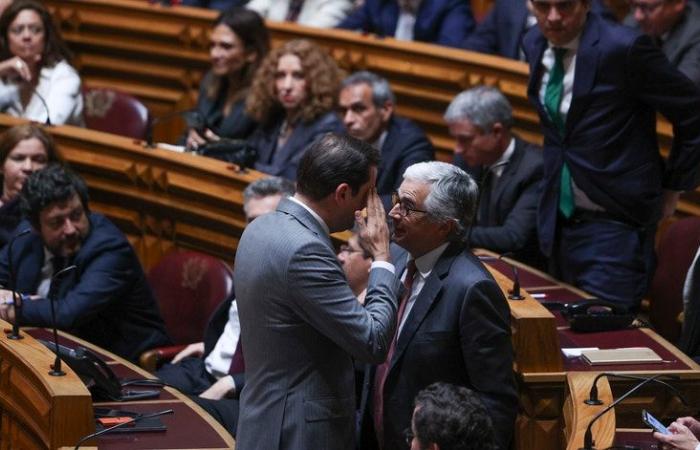José Pedro Aguiar-Branco, was the only name presented to succeed Augusto Santos Silva.
“The election of the President of the Republic took place, and the following result was determined. Two hundred and thirty voters, proposed candidate José Pedro Aguiar-Branco, votes in favor, 89, blank votes 134, null votes, seven”, confirmed António Philip.
“The proposed name is declared not elected to the presidency of the Assembly of the Republic”, he concluded.
Following Aguiar-Branco’s lead, the PSD parliamentary leader, Joaquim Miranda Sarmento, immediately asked for work to be interrupted for 30 minutes, which was granted, resuming at 5:30 pm.
The PSD and CDS have 80 deputies, Chega 50 and the Liberal Initiative eight, for a total of 138 possible in favor. However, the vote is secret and Aguiar-Branco managed only 89 favorable voices, opening the way to endless speculation, namely that Chega’s deputies would have voted blank.
André Ventura assured, however, that he gave instructions to his parliamentary group to make the name put forward by the PSD viable.
The PS has 78 deputies, as many as the PSD, BE five and the PCP and Livre four each. The PAN maintains a single deputy.
The left reacted with smiles to the result of the vote. BE had announced the vote against Aguiar-Branco and the PS had criticized the agreement announced between the PSD and Chega, as a “bad sign”.
Afterwards, the voting was carried out by the secretaries of the Bureau and parliamentary staff in the middle of the hemicycle, and it was clear that there was a lot of votes much larger than the others, at the time without the media knowing that they were blank votes.
The deputies should then elect the remaining Board of the Assembly of the Republic, made up of four vice-presidents, four secretaries and four vice-secretaries, a process that cannot proceed without the president of the parliament being elected.
The rules of the Assembly of the Republic determine that the president of parliament is elected at the first plenary meeting of the legislature by an absolute majority of the votes of the deputies in office (116).
“If none of the candidates obtains this number of votes, a second ballot takes place immediately, in which only the two candidates with the most votes who have not withdrawn their candidacy compete. If no candidate is elected, the process is reopened”, states the Rules of Procedure .
It is necessary to go back to 2011, in the XII legislature, when PSD and CDS-PP had an absolute majority, for a single candidate for president of the Assembly of the Republic to fail in the election: Fernando Nobre failed to obtain the necessary absolute majority in two consecutive elections for president of parliament and did not apply for a third.
with Lusa
Tags: AguiarBranco fails election president Assembly Republic
--





